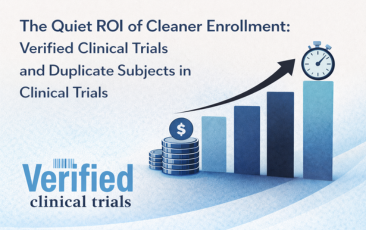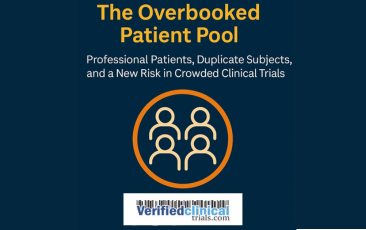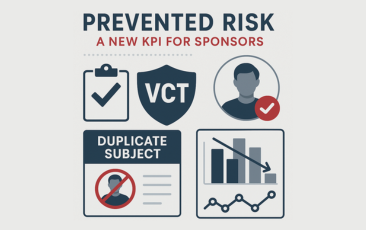What we Do
Verified Clinical Trials helps sponsors detect duplicate and professional subjects, and other important protocol violations.
The only cross-sponsor, cross-therapeutic, global solution that prevents duplicate enrollment at the time of screening.


VCT Featured Insights
The Quiet ROI of Cleaner Enrollment: Verified Clinical Trials Detecting and Preventing Duplicate Subjects in Clinical Trials

Most discussions about clinical trial economics start with big, visible levers:
- number of sites
- enrollment timelines
- per-patient costs
- protocol complexity
Those all matter. But there’s another lever that’s usually underplayed in financial models—precisely because it’s quiet and hard to see. read more
The Overbooked Patient Pool: Professional Patients, Duplicate Subjects, and a New Risk in Crowded Clinical Trials

Sponsors design different protocols, contract with different CROs, choose different sites—and yet, in practice, they’re often competing for the same limited patient pools at the same time. That’s exactly where the risk of professional patients and duplicate subjects in clinical trials quietly increases, even when everyone is doing their best to follow the rules.
The result is a problem that doesn’t appear in any protocol or risk table. read more
Prevented Risk: The KPI Sponsors Haven’t Been Tracking — Verified Clinical Trials and Duplicate Subjects in Clinical Trials

Sponsors are excellent at tracking what happened: enrollment velocity, screen-failure rates, protocol deviations, data queries, adverse events, and time to database lock. These are essential operational and quality signals.
But as therapeutic areas become more competitive and multi-site global programs become the norm, a new reality is emerging. Prevented Risk is a simple but powerful concept. read more
